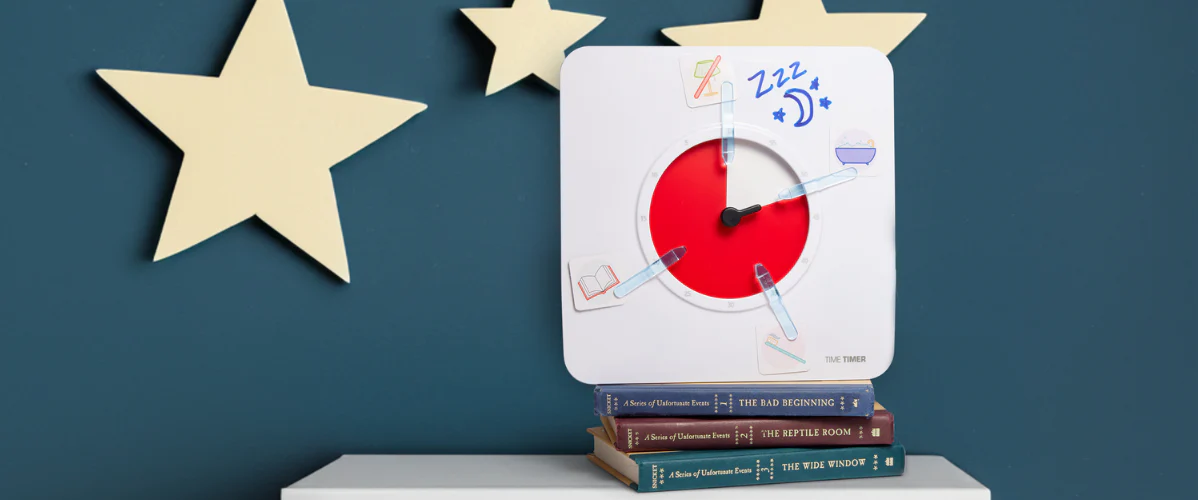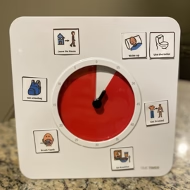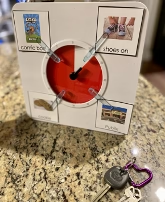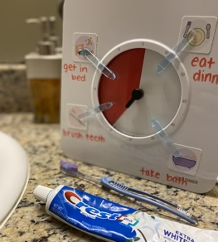Visual timers are beneficial for people of all ages- from toddlers to seniors! Timers assist us by providing structure; guiding us to complete tasks, and helping us transition from one activity to another.
Summer is right around the corner and we are ready to enjoy! When school is out this summer, it’s important to relax and soak in family time, while maintaining routines. A lot can happen in an hour- and the Visual Scheduler is a helpful tool to plan your day. Let’s check out some ways to incorporate the Time Timer Visual Scheduler into your family’s activities.
There are many tasks we need to do each morning before leaving the house. One of my favorite ways to use the Time Timer is to pop off the clips and use tape or Velcro to secure visual supports to the whiteboard. Once each task is completed, the child can easily pull the image off of the board and place it in a small container (like the one pictured below) to signify the task is “all done.”
At home and while running errands, the Visual Scheduler is a wonderful item to set expectations for preferred and nonpreferred activities. In the image below, there are four images clipped to the Visual Scheduler. You may create simple hand drawn illustrations, use photos, or find pictures online (I love using LessonPix.com) Add in your child’s favorite activities interspersed with non-negotiable tasks or errands.
In the image left, you’ll notice the bathroom routine follows dinner. Once dinner is finished, the Scheduler can be moved to the bathroom, where the evening routine can continue.
Whether you use the Visual Scheduler throughout the day or specifically to ease hectic times in your routine, feel free to get creative. I hope you enjoy using this visual support as much as I do!
About the Author

Chelsea Pierce, PhD, BCBA, is a seasoned professional with a robust background supporting learners with autism and their families. With a Master’s Degree and a Doctorate of Philosophy in Special Education, Chelsea’s educational journey has equipped her with comprehensive expertise in the field.
Chelsea’s dedication to empowering individuals on the autism spectrum shines through in her work. She has served in a variety of roles, including as a Special Education teacher, Advocate, Educational Consultant, and Case Manager. She has worked for the Center for Autism and Related Disabilities (CARD) at the University of Central Florida, as well as the University of Florida, Jacksonville.
Her passion lies in working directly with families, ensuring they have access to evidence-based practices that are practical for implementation in their homes. Driven by a genuine desire to make a difference, Chelsea continues to support individuals with autism and their families, striving to create a more inclusive and supportive community for all.




